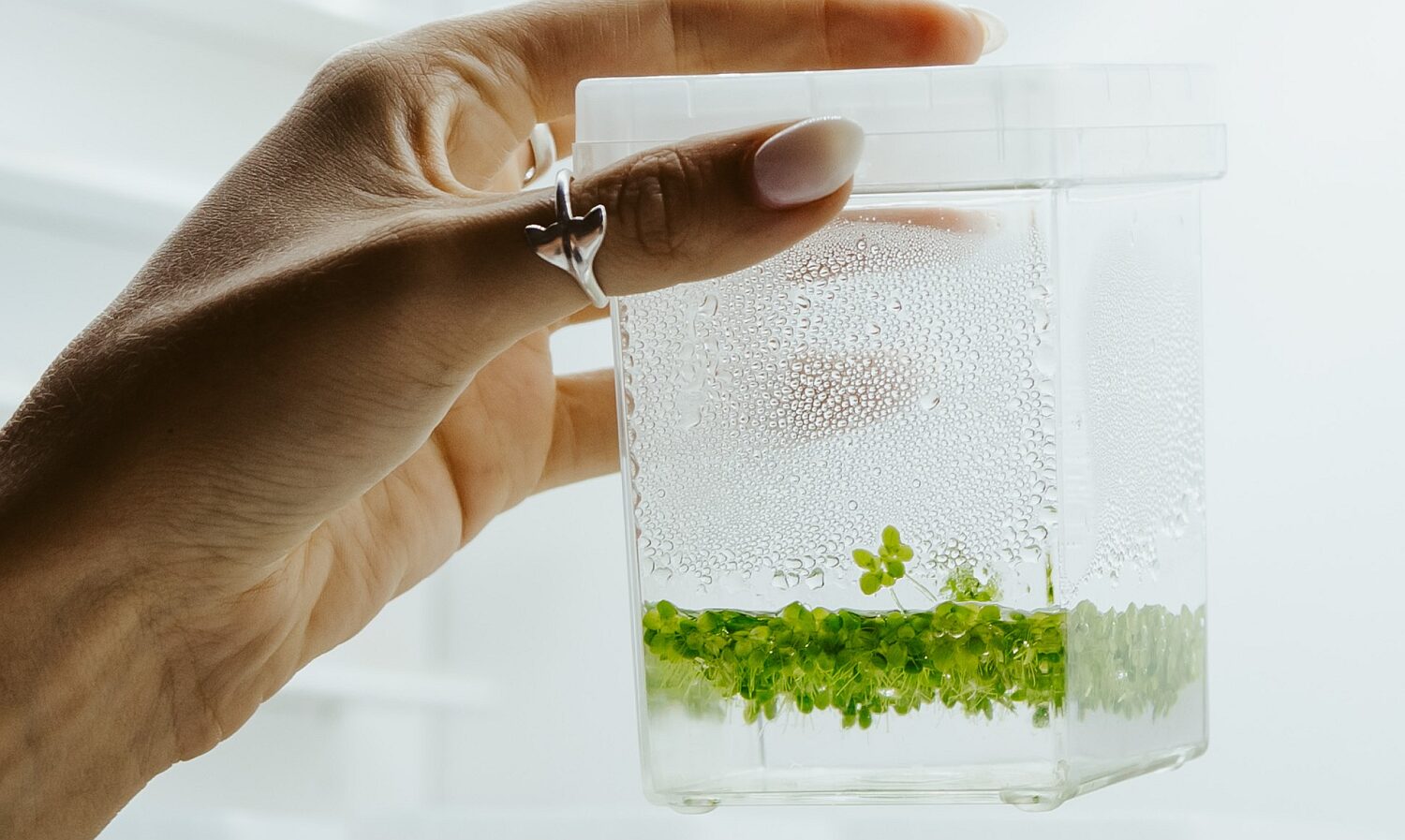
By Agroempresario.com
Aspyre Foods, a South African startup, is pioneering the use of duckweed as a sustainable biofactory to produce two highly functional food proteins: casein and RuBisCO. Cofounders Thomas Bartleman and Inge Mendelsohn envision a platform that maximizes the value of plant biomass, providing animal-free proteins with wide applications in the food industry.
While several startups focus on molecular farming to produce recombinant dairy proteins in crops, Aspyre Foods emphasizes that co-extracting RuBisCO, a versatile leaf protein, improves the economic viability of the platform. Duckweed grows extremely rapidly, requires minimal inputs, and can be cultivated continuously in controlled, non-arable environments, making it an ideal candidate for protein production.
“Duckweed grows a lot faster than other plants, and you can harvest it continuously. It is resource-efficient, uses low water, and can be produced in contained environments,” explains Bartleman. By avoiding open-field trials, the company also navigates regulatory challenges associated with allergenic dairy proteins while accelerating development.
Bartleman notes that vertical integration is key for extracting RuBisCO, which degrades quickly after harvest. Duckweed, a free-floating aquatic plant, doubles in mass every 2-3 days, making it a prime candidate for scalable RuBisCO production.
RuBisCO, one of the most abundant proteins on the planet, rivals animal proteins like egg and whey in foaming, emulsification, and gelling properties, while also offering high digestibility. The main challenge in its extraction is obtaining protein with neutral color and taste while preserving functional qualities.
Recombinant casein production presents additional challenges. In mammals, four key casein proteins form micelles, which give cheese its melt and stretch properties. Aspyre Foods focuses on producing two casein proteins separately, using one duckweed strain for each protein, while maintaining functionality.
“The market for animal-free dairy proteins demands a consistent, cost-effective supply with the right functionality,” says Bartleman. Ethical and environmental factors are considered advantages, but the business relies on reliability, scalability, and economics.

Aspyre Foods has raised capital from investors including Nucleus Capital, OneBio, Uncompromise, Purple Orange Ventures, Launch Africa Ventures, and 3 Capital Ventures, with a seed round planned for late 2025 or early 2026.
“Our goal is to have a pilot production facility operational by the end of Q3 2026,” Bartleman confirms. At lab scale, the company has achieved a functional RuBisCO extraction process and significant casein yields. Currently, co-extraction of both proteins is underway, offering cost savings and efficiency gains.
The pilot facility in South Africa will serve as a testing ground for process optimization and new product development, targeting local markets and broader African regions. Simultaneously, Aspyre Foods monitors potential expansion into Asia and the Middle East.
By leveraging duckweed, Aspyre Foods maximizes biomass utilization and reduces resource input compared to conventional plant-based protein production. The dual production of RuBisCO and casein enhances profitability and positions the company to compete in a growing market for sustainable, animal-free proteins.
The combination of molecular biology expertise and fast-growing aquatic plants allows for a controlled, scalable, and cost-effective approach. Bartleman and Mendelsohn emphasize that the focus is on delivering a reliable ingredient supply to food manufacturers, ensuring consistent quality in a volatile dairy market.
Aspyre Foods plans to continue refining its platform, optimizing co-extraction processes, and testing new products for functionality, taste, and market appeal. The South African pilot will provide insights for scaling to larger production facilities, meeting growing global demand for dairy alternatives and high-performance plant proteins.
Bartleman concludes: “We are maximizing the biomass value, producing two highly functional proteins from a single plant, and developing solutions that are scalable, sustainable, and economically viable for the global food industry.”
